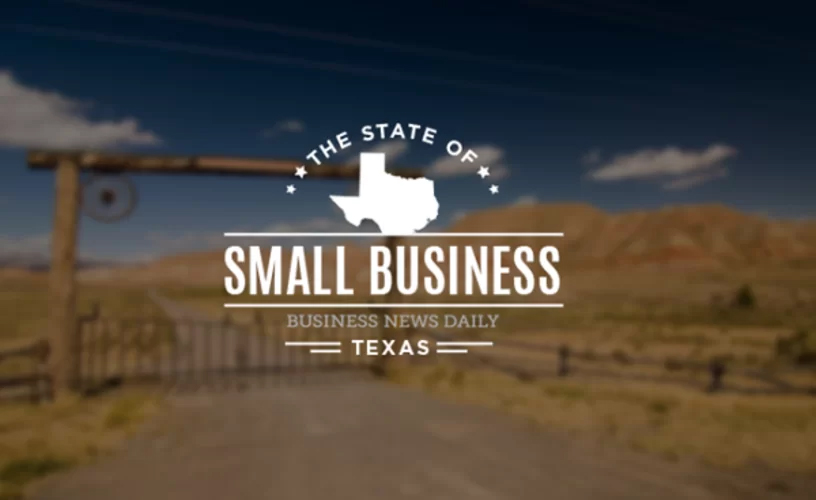As part of our yearlong project “The State of Small Business,” in which Business News Daily reports on the small business environment in every U.S. state, we asked a few of Texas’ 2.4 million-plus small business owners about the challenges and opportunities of operating in their state. Here’s what they had to say.
With no corporate or individual income tax, a relatively relaxed regulatory environment and booming growth in several major cities, Texas is a good place to do business. With a $1.6 trillion gross domestic product (GDP) — the second-largest in the nation, after California — Texas weathered the economic crisis of 2008, and its recovery has been robust and speedy.
“Texas is very much a ‘can do’ state. It’s arguable that it’s the number one state to do business in, and we would argue it’s the number one state to start a business in right now,” said Trey Bowles, founder and CEO of the The Dallas Entrepreneur Center, who was among many we spoke to who were enthusiastic about the state’s business climate.
Texas’ small business owners, especially those in the Houston, Austin and Dallas-Fort Worth areas, reported healthy growth in terms of populations and business startups, and the state’s GDP grew by 5.2 percent from 2013 to 2014 alone, according to the U.S. Bureau of Economic Analysis (BEA).
In fact, entrepreneurs claim their biggest challenges are finding enough skilled labor to keep up with the breakneck speed of growth, and accessing enough capital to invest more into their expansions. On the flip side, they cite the affordable cost of living, easily navigated state regulations and low taxes as key benefits of doing business in the Lone Star State.
[See Business News Daily’s complete coverage of the State of Small Business in the U.S.]
Challenges
Access to capital
One hurdle for small businesses, particularly startups, is access to capital. Financing the launch of a business or the expansion of an existing one requires a good deal of capital, but Texans said it can be difficult for entrepreneurs to find the money they need.
“It’s all tied to the fact that banks are not loaning money like they were 10 years ago,” David Frankel, chief marketing officer at the alternative lender Capify, told Business News Daily. “It’s a lot more conservative, and this is a global trend.”
Many small businesses have trouble getting a loan from area banks, and those in rural areas have limited options unless they travel into the city, Frankel said. Venture capitalists and angel investors can be difficult to find and, if they are willing to invest, often attach undesirable terms to the capital they offer. For example, Frankel said VCs typically want businesses to uproot and move to wherever the investor is headquartered. There’s no dearth of wealthy potential investors based in Texas, but as it stands, that in-state money is, by and large, not flowing to ground-level enterprises.
“There is not enough capital going into the early-stage entrepreneurial world,” Bowles told Business News Daily. “There is an enormous amount of money in this area … But, the question is, how do we [convince] a billionaire or major corporation to invest in early-stage entrepreneurs?”
Declining labor force
One problem that the small business owners we interviewed mentioned repeatedly was the difficultly of finding the labor they need to continue growing at the pace they would like. It seems that both Texas’ immense economic expansion and a labor force decline that persisted through 2015 have contributed to the problem. Still, most entrepreneurs we spoke with view their difficulty in finding additional help as a good problem to have because it means they are constantly expanding.
“We’re growing so fast, and we’re so busy, that finding really good people is a challenge,” said Bernard Ortiz de Montellano, owner of the cleaning service Anago of Austin.
Despite strong population growth, which added 1.8 million people from 2010 to 2014, the Texas labor force shed more than 175,000 people from January to September 2015, according to the U.S. Bureau of Labor Statistics.
“The largest issue we face … is finding employees that are qualified, trained, and have the experience we’re looking for,” said Rusty Crum, president of CG Laboratories.
Kellie Sirna and Stacy Elliston, co-founders of Studio 11 Design, said that, while business has been great, it’s become harder and more expensive to fill positions.
“We’re having to pay 20 percent more for designers straight out of school, whereas before, we could get the cream of the crop for less because nobody was really moving, and things weren’t really growing yet,” Sirna said.
Opportunities
No corporate or individual income taxes
With no corporate income or individual income taxes and no state property tax in the Lone Star State, Texas business owners keep a larger slice of the pie come Tax Day.
“There’s a low tax burden here; that’s kind of the most obvious benefit of being in Texas,” Sirna said.
“The cost of living is low; there’s no state income tax … It’s really just a phenomenal place that is business-friendly,” Bowles added.
But, of course, Texas still has a budget to maintain. The state collects most of its tax revenue through sales and franchise taxes, according to data compiled by the Texas Comptroller’s Office. In 2014, the state collected $45.7 billion in sales and gross receipts tax, which represented 82.7 percent of its $55.26 billion in tax revenue that year, according to the U.S. Census Bureau.
The heavy reliance on sales tax can add a bit of pressure to retailers. For example, Jose Salazar, owner of La Raza Meat Market, said the 8.25 percent sales tax significantly impacts his business.
“The high employee and sales taxes are a big problem for us,” Salazar said. “The big companies like Walmart and Kroger get tax cuts from the government because they are able to donate millions to charity, but a small business like us can only donate so much.”
Simplified state regulations
Many business owners told us that Texas’ regulatory environment is conducive to operating a business successfully. Even business owners in more stringently regulated industries — like Cody Yarborough, president of Lifecycle Biotechnologies— expressed satisfaction with the state’s approach.
“We operate in a highly regulated industry, but from the state level, though, Texas is so pro-business,” Yarborough said. “The state government tries not to get in our way, and that is still the prevalent view in the state congress.”
Christopher Corso, who recently expanded his law firm to Texas, said the state’s simply navigated laws made the transition into a new state easier.
“You always plan for hiccups and problems, but it’s been pretty smooth,” Corso said. “It’s very easy to comply with state laws. I find that it’s a lot easier here than [on] the East Coast, [where I used to work].”
Growing metropolitan areas
The major metropolitan areas in Texas — Dallas-Fort Worth, Austin, Houston and San Antonio — are experiencing strong growth, which leads to more economic activity. Entrepreneurs reported seeing more startups and heaps of small businesses, as well as new residents who increase the demand for their goods and services.
“Small businesses are thriving here in Texas,” Ortiz de Montellano said. “I’m in Austin, and the growth rate here is kind of crazy. Most of our clients are expanding.”
Between 2010 and 2014, Austin’s population grew by an estimated 86,719, according to the state’s Data Center. Dallas added 57,527 people over the same time period, while Fort Worth expanded by 57,176 people. San Antonio added 92,355 residents, bringing its total population to more than 1.4 million people.
Corso, owner of Corso Law Group, said the same growth is happening in Houston, where his defense firm has been practicing for a year. Houston added the most people of any major city in the state. The city grew by an estimated 101,711 people from 2010 to 2014, bringing its total population to 2.2 million people. That boom has led to more startups and business opportunities, Corso said.
“You talk about small business — and you can go anywhere, and that’s all you see,” Corso said. “There are no empty places. The growth is huge. There are people just flooding into here.”
Diversity and supportive environment
Another benefit entrepreneurs mentioned repeatedly was the supportive and diverse business communities throughout the state. Many business owners said they belong to an entrepreneurial organization or have sought help from a development center. Others said their areas are seeing a boom in startups and small business growth spurred by the aforementioned population growth.
“Texas, from what I can see … hasn’t been hit as hard by a lot of the economic struggle,” Crum said.
“You really can’t believe how many businesses [there are] to the left and right as you drive down the road,” Corso said. “I’m in a great city; it’s pro-growth, with a lot of diversity.”
Mark del Bosque, owner of the e-commerce company Anime Bento, said that, amid the booming growth and healthy entrepreneurial environment, he’s found support from community members and other small business owners in the area.
“There’s such a tight network of people here, and I’ve found that support to be a very good thing,” Del Bosque said. “It seems like there is a good beginning of an enterprising revolution, where people are working with small business[es] and growing them.”
Sirna and Elliston have been able to take advantage of the thriving business environment in Dallas, for example. While much of their designing is centered around the hospitality industry, they’ve been able to branch out and find other clients as well. According to Sirna, this has helped protect them from any future downturns in hospitality.
“Since we’re in Dallas, we’re able to focus on a variety of industries,” Sirna said. “The first thing to go down in a recession is hospitality, because people don’t travel, so we’ve diversified ourselves. We’re really able to do that because of the widespread business ownership in Texas.”
Resources for Small Businesses in Texas
Texas Small Business Development Centers
Texas is home to dozens of small business development centers. Each is dedicated to supporting the development and retention of small business, and helps entrepreneurs with tasks like crafting business plans and navigating the state’s tax code. You can find your region’s small business development center via the link below.
Texas SCORE
SCORE offers volunteer business professionals and expert “mentors” to help give counseling and guidance to entrepreneurs looking to start or expand their business. Their services are free and volunteer-driven. Here are some of the chapters in Texas.
Texas Economic Development Corporation
Established by the state government, the Texas Economic Development Corporation is intended to promote economic development throughout the entire Lone Star State. The organization offers resources and information for small business owners looking to launch a startup or expand an existing business.
The Dallas Entrepreneur Center
The Dallas Entrepreneur Center (DEC) is a 501(c)(3) nonprofit that serves entrepreneurs in the Dallas area, providing a location where they can receive training, education, mentorship, promotion and access to capital in order to encourage and equip the entrepreneurial community to start, build and grow their businesses.
Original Post:
http://www.businessnewsdaily.com/8743-doing-business-in-texas.html


